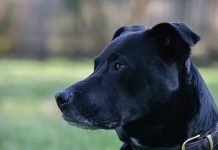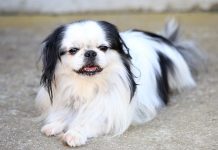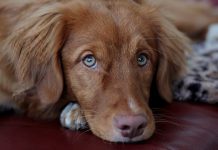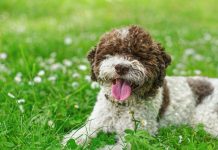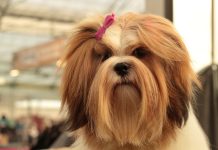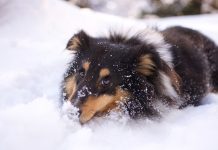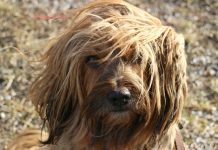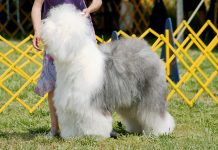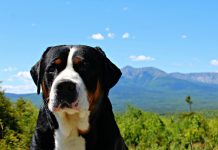History and Origins of the Coton de Tulear Breed
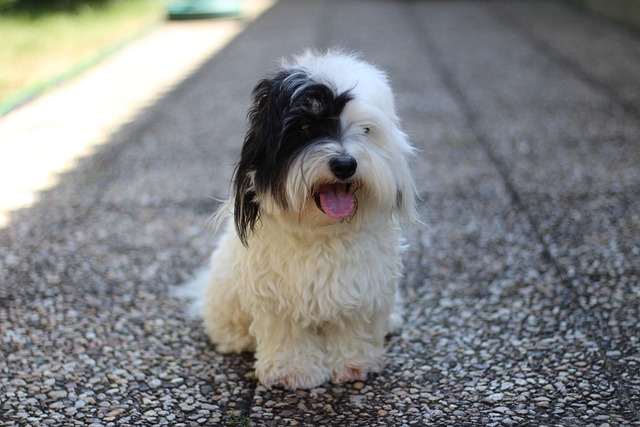
The Coton de Tulear is a charming small breed known for its fluffy white coat and cheerful personality. Originating from Madagascar, the breed’s history is steeped in legend and mystery. Here’s an overview of the history and origins of the Coton de Tulear:
- Madagascar Origins: The Coton de Tulear hails from the island of Madagascar, located off the southeastern coast of Africa. It is believed that the breed developed centuries ago through a combination of local dogs and dogs brought by sailors and travelers to the island.
- French Influence: The breed’s name “Coton de Tulear” refers to its cotton-like coat and the seaport town of Tulear (now known as Toliara) in Madagascar. French settlers and sailors are thought to have played a role in developing and refining the breed.
- Companion and Aristocratic Status: Historically, the Coton de Tulear was favored by the Malagasy nobility and aristocracy as a companion dog. They were cherished for their affectionate nature, small size, and delightful personality.
- Breed Preservation: In the mid-20th century, efforts were made to preserve and promote the Coton de Tulear breed. The breed’s population faced decline due to its rarity, but dedicated enthusiasts and breeders worked to maintain and expand the breed’s gene pool.
- Recognition and Popularity: The Coton de Tulear gained recognition outside Madagascar in the 1970s and 1980s, particularly in Europe and North America. The breed’s appealing appearance and amiable temperament contributed to its growing popularity as a companion dog.
Today, the Coton de Tulear is cherished as a delightful and affectionate family pet known for its playful demeanor, intelligence, and devotion to its human companions.
Physical Characteristics and Appearance of Coton de Tulears
The Coton de Tulear is a small and sturdy breed with distinctive features and a unique coat. Here are the key physical characteristics and appearance traits of the Coton de Tulear:
- Size: Coton de Tulears are small dogs, with males typically standing 10 to 12 inches (25 to 30 cm) at the shoulder and females slightly smaller. They usually weigh between 8 to 15 pounds (4 to 7 kg).
- Coat: The breed’s most notable feature is its dense, cotton-like coat, which is soft, fluffy, and virtually non-shedding. The coat is predominantly white, although some Cotons may have slight shades of champagne or gray on the ears.
- Head and Expression: Cotons have a slightly rounded skull with a well-defined stop. The eyes are round, expressive, and dark in color, giving them a sweet and lively expression. The ears are medium-sized and covered with long, silky hair.
- Body: The body is compact and balanced, with a level topline and a moderately deep chest. The tail is plumed and carried jauntily over the back.
- Facial Features: Cotons have a short to medium-length muzzle, black nose, and dark, expressive eyes. The breed’s facial expression is often described as joyful and engaging.
- Gait: Cotons move with a lively, springy gait, reflecting their energetic and playful nature.
- Overall Impression: The Coton de Tulear exudes a charming and endearing presence, combining elegance with a touch of whimsy. Their fluffy coat and joyful demeanor make them irresistible companions.
The Coton de Tulear’s delightful personality, low-shedding coat, and adaptability to various living environments have contributed to its popularity as a cherished family pet. Regular grooming and socialization are important for keeping this breed happy and healthy.
Coton de Tulear Temperament and Personality Traits
The Coton de Tulear is renowned for its friendly and affectionate temperament, making it an ideal companion for families and individuals alike. Understanding their temperament and personality traits is essential for providing appropriate training and socialization. Here’s a closer look at the temperament and personality of the Coton de Tulear:
- Friendly and Sociable: Cotons are naturally friendly and sociable dogs that enjoy being around people and other pets. They form strong bonds with their family members and are generally welcoming to strangers.
- Playful and Energetic: Despite their small size, Cotons are playful and energetic dogs that enjoy interactive games and activities. They have a cheerful disposition and love to entertain their owners with their antics.
- Affectionate and Devoted: Cotons are affectionate and devoted companions that thrive on human interaction. They are known for their loyalty and are often referred to as “velcro dogs” because they like to stick close to their owners.
- Intelligent and Responsive: Cotons are intelligent dogs that respond well to positive reinforcement training methods. They enjoy learning new tricks and commands and are eager to please their owners.
- Adaptable and Versatile: Cotons adapt well to different living environments, whether it’s a small apartment or a larger home with a yard. They are versatile dogs that can adjust their activity level to match their owner’s lifestyle.
- Gentle and Patient: Cotons have a gentle demeanor and are well-suited for families with children. They are patient and tolerant, making them excellent companions for households with kids.
- Alert and Vocal: While not excessively barky, Cotons will alert their owners to visitors or unusual sounds with a soft, pleasant bark. They make good watchdogs due to their alert nature.
- Low-Shedding and Hypoallergenic: Cotons have a unique coat that is hypoallergenic and low-shedding, making them suitable for individuals with allergies or those who prefer a cleaner home environment.
- Sensitive and Emotionally Responsive: Cotons are sensitive dogs that are attuned to their owner’s emotions. They thrive on positive interactions and may become stressed in tense or chaotic environments.
- Good with Other Pets: Cotons generally get along well with other dogs and pets when properly socialized from a young age. They enjoy canine companionship and can be playful with other animals.
Training and Socialization Needs for Coton de Tulears
While Cotons are eager to please and relatively easy to train, they benefit from consistent training and early socialization to thrive as well-rounded companions. Here are some important considerations for training and socializing your Coton de Tulear:
- Positive Reinforcement: Use positive reinforcement techniques such as treats, praise, and play to motivate and reward desired behaviors. Cotons respond well to gentle training methods and thrive on encouragement.
- Early Socialization: Expose your Coton de Tulear puppy to various people, animals, sounds, and environments from an early age. This helps build confidence, prevent fearfulness, and promote good manners.
- Basic Obedience Training: Start basic obedience training as soon as possible to establish a foundation of good behavior. Focus on commands such as sit, stay, come, and leash manners. Keep training sessions short, fun, and engaging.
- Interactive Play: Cotons enjoy interactive play sessions that stimulate their mind and body. Provide toys, puzzle games, and activities that challenge their intelligence and keep them mentally engaged.
- Grooming Routine: Get your Coton de Tulear accustomed to regular grooming sessions early on. Brush their coat daily to prevent matting and tangles, and introduce them to grooming tools such as brushes and nail clippers gradually.
- Consistent Rules and Boundaries: Establish consistent rules and boundaries for your Coton de Tulear to follow. Be patient and gentle but firm in your training approach to reinforce positive behaviors.
- Patience and Encouragement: Cotons are sensitive dogs that respond well to positive reinforcement and encouragement. Avoid harsh training methods or punishment, as it can undermine their trust and confidence.
- Socialization with People and Pets: Encourage positive interactions with people of all ages and other pets to help your Coton de Tulear develop good social skills and manners.
- Regular Exercise: Provide daily exercise and mental stimulation to keep your Coton physically fit and mentally sharp. Short walks, playtime, and interactive games are beneficial for their overall well-being.
By providing appropriate training, socialization, and enrichment activities, you can help your Coton de Tulear thrive as a well-behaved and happy companion. Consistent positive reinforcement, patience, and affectionate guidance will strengthen your bond with your Coton and ensure a fulfilling relationship for years to come.
Health Considerations and Common Issues in Coton de Tulears
Coton de Tulears are generally healthy dogs with a long lifespan, but like all breeds, they may be prone to certain health conditions. Understanding these potential issues and providing appropriate care can help ensure the well-being of your Coton de Tulear. Here are some common health considerations and issues in this breed:
- Luxating Patella (Patellar Luxation): This is a condition where the kneecap (patella) dislocates or moves out of its normal position, causing lameness or difficulty in walking. Regular vet check-ups can monitor this condition.
- Hip Dysplasia: A hereditary condition where the hip joint doesn’t develop properly, leading to arthritis and mobility issues. Responsible breeding practices can help reduce the risk of hip dysplasia.
- Progressive Retinal Atrophy (PRA): This is a group of genetic diseases that cause the degeneration of the retina, leading to vision loss and eventual blindness. Responsible breeders screen for PRA to reduce its prevalence in the breed.
- Cataracts: Cataracts are a common eye condition in Cotons de Tulear, causing cloudiness in the lens of the eye and potentially leading to vision impairment. Regular eye exams can detect cataracts early.
- Patent Ductus Arteriosus (PDA): This is a congenital heart defect where an abnormal blood vessel fails to close after birth, affecting heart function. Treatment may involve surgical correction.
- Allergies: Cotons de Tulear may develop allergies to environmental factors (pollen, dust, etc.) or certain foods. Symptoms may include itching, skin irritation, or gastrointestinal issues. Identifying and avoiding allergens is key.
- Dental Issues: Small breeds like Cotons are prone to dental problems such as tartar buildup, gum disease, and tooth decay. Regular dental care, including brushing their teeth, is important for maintaining oral health.
- Obesity: Cotons de Tulear can gain weight easily if overfed or under-exercised. Obesity can lead to various health problems, including joint issues and diabetes. A balanced diet and regular exercise are essential.
- Hypothyroidism: This is a condition where the thyroid gland does not produce enough hormones, leading to weight gain, lethargy, and skin problems. Regular veterinary check-ups can monitor thyroid function.
- Skin Issues: Some Cotons may be prone to skin conditions such as atopic dermatitis or allergies, resulting in itching, redness, or hair loss. Proper grooming and using hypoallergenic products can help manage skin health.
Regular veterinary visits, preventive care, and early detection of health issues are crucial for maintaining the health and well-being of your Coton de Tulear. Consult with your veterinarian for personalized advice on preventive measures and health monitoring.
Living with a Coton de Tulear: Suitable Environments and Lifestyle Considerations

Coton de Tulears are adaptable and versatile dogs that can thrive in a variety of living environments, provided they receive proper care and attention. Here are some considerations for living with a Coton de Tulear:
- Indoor Living: Cotons are well-suited for indoor living and enjoy being close to their families. They are small dogs that can comfortably live in apartments or houses with adequate space for play and exercise.
- Moderate Exercise: Cotons have moderate exercise needs and enjoy daily walks, playtime, and interactive activities. They also benefit from mental stimulation, such as puzzle toys or training sessions.
- Grooming Requirements: The Coton de Tulear’s coat requires regular grooming to prevent matting and tangles. Daily brushing is recommended, along with periodic baths and trimming of nails and paw pads.
- Social Interaction: Cotons are social dogs that thrive on companionship and human interaction. They enjoy spending time with their families and may experience separation anxiety if left alone for long periods.
- Family Companionship: Cotons make excellent family pets and get along well with children and other pets when properly socialized. Supervision is recommended to ensure gentle and respectful interactions.
- Training and Socialization: Consistent training and early socialization are important for Cotons to develop good manners and confidence. Positive reinforcement methods work best with this sensitive breed.
- Health Monitoring: Regular veterinary check-ups, vaccinations, and preventive care are essential for maintaining the health of your Coton de Tulear. Stay vigilant for any signs of health issues and seek prompt veterinary attention when needed.
- Nutritional Needs: Feed your Coton de Tulear a balanced and nutritious diet suitable for their age, size, and activity level. Avoid overfeeding and monitor their weight to prevent obesity-related health problems.
- Safety Considerations: Ensure that your home environment is safe and secure for your Coton de Tulear. Remove potential hazards, provide comfortable resting areas, and supervise outdoor activities to prevent accidents or escapes.
By providing a loving and nurturing home environment, regular exercise, proper grooming, and veterinary care, you can ensure that your Coton de Tulear lives a happy, healthy, and fulfilling life as a cherished family companion. Consider their unique needs and characteristics to create a lifestyle that supports their well-being and happiness.
Coton de Tulear Variations and Breeding Practices
The Coton de Tulear is a breed with a relatively standardized appearance and coat type, but there can be some variations within the breed. Additionally, responsible breeding practices are essential for maintaining breed standards and producing healthy, well-balanced Cotons. Here’s a look at variations and breeding practices related to the Coton de Tulear:
Variations in Coton de Tulears:
While the Coton de Tulear breed generally conforms to specific standards set by kennel clubs and breed organizations, some variations may be observed:
- Coat Texture: Cotons have a distinctive cotton-like coat that is soft, fluffy, and hypoallergenic. The texture of the coat can vary slightly among individuals, ranging from slightly wavy to more tightly curled.
- Coat Color: The breed standard for Cotons de Tulear specifies a predominantly white coat with slight shades of light gray or champagne permissible on the ears. However, some Cotons may exhibit more pronounced color variations on the ears or body.
- Size: While there is a general size range for Cotons (approximately 8 to 15 pounds), variations in size may occur due to genetic factors and breeding practices. Responsible breeders aim to produce Cotons within the standard size range.
- Facial Features: Cotons typically have a charming and expressive face with round, dark eyes and a short to medium-length muzzle. Variations in facial structure and expression may be observed among individual dogs.
Breeding Practices for Coton de Tulears:
Responsible breeding practices are crucial for maintaining the health, temperament, and conformation of the Coton de Tulear breed. Here are key considerations for ethical breeding practices:
- Health Screening: Responsible breeders conduct comprehensive health screenings on breeding dogs to identify and eliminate hereditary health issues such as hip dysplasia, patellar luxation, progressive retinal atrophy (PRA), and heart conditions. Only healthy dogs with favorable genetic profiles should be used for breeding.
- Pedigree Analysis: Breeders should maintain accurate pedigree records and trace the lineage of their breeding dogs to ensure genetic diversity and adherence to breed standards. Pedigree analysis helps prevent the transmission of undesirable traits and promotes breed health.
- Conformation to Breed Standards: Breeding dogs should closely conform to the breed standards set by recognized kennel clubs and breed organizations. This includes physical attributes such as coat type, color, size, and overall structure.
- Temperament and Behavior: Ethical breeders prioritize temperament and behavior, selecting breeding dogs with stable, friendly, and well-adjusted personalities. This helps ensure that puppies inherit desirable temperament traits.
- Ethical Practices: Responsible breeders prioritize the welfare and well-being of their dogs, providing appropriate care, nutrition, socialization, and veterinary attention. They avoid overbreeding and strive to find suitable homes for puppies.
- Education and Mentorship: Ethical breeders are committed to continuous learning and improvement, staying informed about breed health, genetics, and best practices. They mentor aspiring breeders and educate puppy buyers about responsible ownership.
- Commitment to Breed Improvement: Ethical breeders are dedicated to the long-term preservation and improvement of the Coton de Tulear breed. They actively participate in breed clubs, events, and activities to promote breed health and integrity.
By adhering to responsible breeding practices, breeders contribute to the preservation of the Coton de Tulear breed’s unique qualities and ensure that future generations of Cotons are healthy, well-adjusted, and true to breed standards. Prospective Coton de Tulear owners should seek reputable breeders who prioritize health, temperament, and breed integrity in their breeding programs.
50 Best Names with Meanings for Coton de Tulear
Naming your Coton de Tulear can be a delightful experience, especially with meaningful names that reflect your dog’s personality and characteristics. Here’s a list of 50 best names along with their meanings for your Coton de Tulear:
- Bella – Means “beautiful” in Italian.
- Charlie – A friendly and popular name for a cheerful dog.
- Luna – Represents the moon, symbolizing beauty and grace.
- Max – Short for Maximilian, meaning “greatest.”
- Daisy – A cheerful flower name that suits a happy-go-lucky dog.
- Teddy – Ideal for a cuddly and lovable companion.
- Coco – Stylish and chic, perfect for a fashionable Coton.
- Milo – Means “gracious” or “soldier” in Latin.
- Lucy – Derived from “light,” symbolizing brightness and joy.
- Oliver – Represents “peaceful” or “olive tree.”
- Mia – Means “mine” or “beloved” in Italian.
- Finn – Short and sweet, representing “fair” or “white.”
- Sophie – A classic name meaning “wisdom” or “intelligence.”
- Bailey – Suitable for a friendly and outgoing dog.
- Stella – Translates to “star” in Latin, signifying radiance.
- Cooper – Represents “barrel maker” or “one who makes barrels.”
- Rosie – Derived from “rose,” symbolizing beauty and elegance.
- Ollie – A playful and endearing nickname for Oliver.
- Chloe – Means “blooming” or “fertility” in Greek.
- Toby – Represents “God is good” or “the Lord is good.”
- Zoe – Means “life” in Greek, symbolizing vitality.
- Winston – A distinguished name for a regal Coton.
- Lola – A lively and spirited name for a fun-loving dog.
- Gizmo – Perfect for a small and curious Coton.
- Penny – Represents “weaver” or “bobbin,” symbolizing creativity.
- Rocco – Meaning “rest” or “battle cry,” suitable for a resilient dog.
- Millie – Short for Millicent, meaning “strong in work.”
- Leo – Represents “lion,” symbolizing strength and courage.
- Piper – A musical name for a lively and energetic companion.
- Buddy – Ideal for a devoted and loyal friend.
- Ivy – Represents the evergreen climbing plant, symbolizing fidelity.
- Felix – Means “happy” or “fortunate” in Latin.
- Sadie – Derived from “princess” or “noblewoman.”
- Louie – A charming and friendly name for a lovable dog.
- Minnie – A cute and endearing name for a small Coton.
- Archie – Represents “bold” or “brave,” perfect for an adventurous dog.
- Maggie – Means “pearl,” symbolizing purity and elegance.
- Harley – Ideal for a spirited and lively Coton.
- Riley – Represents “valiant” or “courageous.”
- Gigi – A fashionable and chic name for a stylish companion.
- Baxter – Means “baker,” suitable for a food-loving dog.
- Ruby – Represents the precious gemstone, symbolizing love and passion.
- Winnie – Derived from “joy” or “happiness.”
- Louise – A sophisticated name for a refined Coton.
- Cody – Means “helpful” or “pillow,” representing comfort.
- Lucky – Perfect for a fortunate and beloved companion.
- Daisy – Represents the cheerful flower, symbolizing happiness.
- Zeus – Named after the king of the gods in Greek mythology.
- Pippa – A playful and lively name for an energetic dog.
- Mocha – Inspired by the coffee beverage, suitable for a warm and inviting Coton.
Choose a name that resonates with your Coton de Tulear’s personality, appearance, and your personal preferences. Whether you prefer a classic, trendy, or unique name, your Coton will respond to the love and care you provide, regardless of their name!

In summary, the Coton de Tulear is a delightful and charming breed known for its friendly demeanor, playful nature, and affectionate personality. Originating from Madagascar, this breed has gained popularity for its cotton-like coat, which is soft and hypoallergenic. Cotons are adaptable to various living environments and make wonderful companions for families, singles, and seniors alike. They thrive on human companionship and enjoy participating in activities with their owners. Cotons are known for their intelligence and eagerness to please, making them relatively easy to train. With their joyful disposition and low-maintenance grooming needs, the Coton de Tulear is a great choice for those seeking a loving and sociable canine companion.






